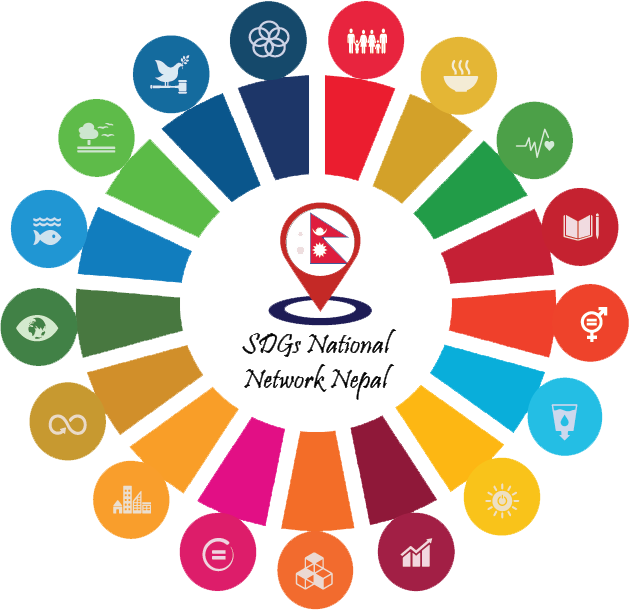SDGs National Networ k Nepal (SDGs Network) is common platform of civil society Major Groups and Stakeholders, which has been coordinating the civil society process on the 2030 Agenda of Sustainable Development (SDGs) since 2019 in Nepal. Assembly of civil society Major Groups held on 25 November 2019 in Kathmandu formed this platform as a member-based network. SDGs National Network has been mobilizing and encouraging the civil society Major Groups including youth, women, children, Dalits, Indigenous Peoples, PWDs etc. for their effective engagement in SDGs. This network is directly engaging with government, parliament, local authorities, UN Agencies, INGOs, media and other international agencies. Actually, this network was originated by Nepal Peoples Forum on Sustainable Development, which was successfully hosted on 21-22 August 2019 in Kathmandu.

SDGs National Network is governed by an Operation Guideline Document, which is the major policy document that guides the entire functions and activities of the network. The Operational Guideline ensures the works of network systematic, responsible, accountable and transparent.
Main objective of this network is to contribute to achieving SDGs in the country by promoting civil society major groups. So, the 2030 Agenda is major working area of the network.
SDGs Network is a member based platform. There are three types of members under this network:
Human Rights and Development Justice are the two major principles of this network.
SDGs National Network Nepal works in the whole country and it has local chapters at province and district level. It can form its chapters at municipality level as well.
Key functions of the SDGs National Network are: